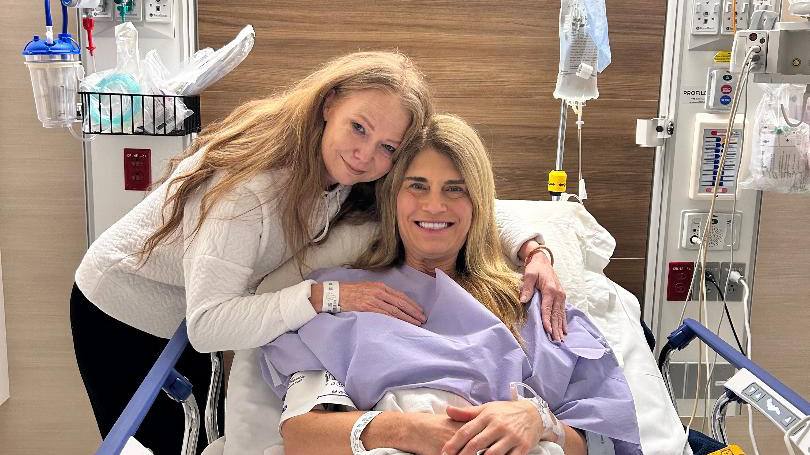
Lisa Brown, 53, of Jacksonville, suffered from severe pelvis and back pain for years. She later learned that her bladder wasn't working due to follicular cystitis, a rare and non-specific inflammatory disease of the bladder, and inflammatory pseudotumor of the bladder. In 2017, her bladder was removed using robotic-assisted surgery and replaced with a "neobladder" that was attached to her ureters, which are the tubes that carry urine produced by the kidneys. Unfortunately, ongoing challenges with her bladder caused permanent damage to her kidneys.
"I had recurring bladder infections to where my kidneys started backing up," says Lisa. "I’d been in late-stage kidney failure since 2018."
Lisa had nephrostomy tubes for more than a year that had to be exchanged every six weeks until her ureters were surgically repaired in 2019. She has also had to have iron infusions periodically because of low kidney function, and battled extreme fatigue, continued low back pain, anemia, and a feeling of constantly being cold. Her nephrologist referred her to Mayo Clinic in Florida to be considered for a kidney transplant.

After Lisa qualified for a transplant, her cousin, Michelle Tatum, was tested as a match and stepped up to be her donor.
"My decision to donate wasn't made lightly, but I will say it was made easily," says Michelle. "I truly believe God gave me two kidneys when I only need one for this exact purpose." Lisa received her new kidney on Jan. 25, 2024.
"I love Lisa with all my heart," says Michelle, reflecting on what inspired her to become an organ donor. "I watched her health decline over the last five years. I decided to get tested and see if I could donate and said that if it was God's plan, it would all work out, and it did, perfectly. I was raised in a way where generosity and kindness toward others are celebrated and encouraged. I can’t change the world, but I can change one person’s world."
This National Donor Day, an annual observance dedicated to spreading awareness and education about organ, eye and tissue donation, Michelle hopes others will also consider being living donors.

"I would definitely encourage others to get tested and consider becoming organ donors," says Michelle. "I have been blessed with a deeper meaning and greater purpose in my life. Some people have thanked me for what I did, but to me, the gifts I received were much greater than the ones I gave."
Lisa shares that her kidney function is perfect now.
"I’m so excited about life again and am truly thankful for my donor," Lisa says.
Additional resources:
- Mayo Clinic surgeons perform first robotic-assisted kidney transplant in Minnesota
- Mayo Clinic Minute: Breaking barriers for patients who need kidney transplants
- Lifestyle changes can be critical for kidney transplant patients’ long-term survival







